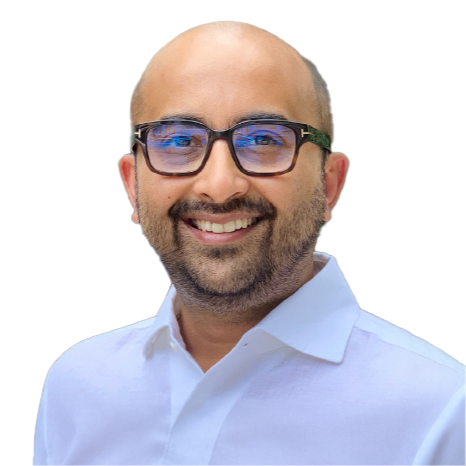Industry leaders, innovators, and policymakers from Africa and beyond are assembling at GSMA MWC25 Kigali, which opens on Tuesday, to discuss how mobile technology can propel Africa’s digital future and accelerate inclusive growth.
The event, which was officially opened by His Excellency Paul Kagame, President of the Republic of Rwanda, offers a jam-packed schedule of sessions, summits, and speakers from governments and international organisations.
Africa on the cusp of a digital revolution
Africa is on the cusp of a digital revolution that will open up previously unheard-of opportunities. The GSMA, however, called for bold policy reforms and investment to make the next steps in Africa’s digital transformation a reality. To do this, it highlighted three urgent priorities for policymakers: energy resilience, inclusive artificial intelligence (AI) language models, and handset affordability.
Vivek Badrinath, Director General of the GSMA, said: “Africa’s mobile sector is one of the most dynamic in the world, but we must tackle persistent barriers such as high device costs, energy availability issues and the lack of inclusive AI. By working together, governments, industry and development partners can make digital inclusion affordable, sustainable and meaningful for every African.”
During the opening keynote, “Africa’s Future First—Determining the Path to a Digital Future,” policymakers, tech pioneers, and operators shared their perspectives on how infrastructure, artificial intelligence, and regulations must develop simultaneously to make connectivity universal.
This year also sees the launch of the GSMA Ministerial Programme, which offers a forum for forming laws that will hasten the region’s digital transformation.
Africa, with the youngest and fastest-growing population in the world, is leading a digital revolution that is changing every aspect of its economy.
GSMA Mobile Economy Africa 2025 Report
Launched on Tuesday, the GSMA Mobile Economy Africa 2025 Report demonstrates how mobile connectivity promotes innovation, inclusion, and economic growth throughout the continent.
In 2024, the mobile industry made up $220 billion (7.7 per cent of GDP) of Africa’s GDP; by 2030, it is expected to have grown to $270 billion (7.4 per cent). Last year, the ecosystem also produced $30 billion in public funding and supported about 8 million jobs (5 million direct and 3 million indirect).
Currently, 416 million Africans use mobile internet; by 2030, that number is predicted to increase to 576 million, or 33 per cent of the total population. By 2030, 5G connections are expected to rise from 2 per cent to 21 per cent, while 4G adoption will rise from 45 per cent to 54 per cent.
Although the coverage gap in Africa is less than 5 per cent, there is still a 960 million usage gap, with 790 million users in Sub-Saharan Africa, which has the most significant usage gap globally.
With projected revenues of $79 billion by 2030, operators plan to invest $77 billion in new networks between 2024 and 2030.
Affordable 4G smartphone proposal by the GSMA and Africa’s biggest telecom companies
Six of Africa’s biggest telecom companies, including Airtel, Axian Telecom, Ethio Telecom, MTN, Orange, and Vodacom, along with the GSMA, proposed a new industry-wide standard for a low-cost entry-level 4G smartphone on Tuesday.
The initiative, part of the GSMA Handset Affordability Coalition, seeks to increase digital inclusion and reduce smartphone costs throughout Africa.
A significant step toward increasing digital inclusion for millions of people was taken recently in South Africa, where the government eliminated 9 per cent ad valorem (luxury) taxes on entry-level smartphones costing R2,500 (USD 150) and under.
Africa’s AI Future
“The AI Future,” another central theme at MWC Kigali this year, focuses on how African-led innovation turns AI into workable solutions in finance, education, and health. In keeping with this, the GSMA announced a continent-wide partnership to create inclusive African AI language models in conjunction with the continent’s top mobile operators and AI ecosystem, including Airtel, the African Population for Health Research Centre (APHRC), Awarri, Axian Telecom, Cassava Technologies, Ethio Telecom, Masakhane African Languages Hub, Lelapa AI, MTN, Orange, Pawa AI, Qhala, the World Sandbox Alliance, and Vodacom.
The initiative will strengthen Africa’s AI ecosystem by filling data, compute, talent, and policy gaps and ensuring that African languages, cultures, and knowledge are represented in the global digital future. All this will be done under the shared ambition of “AI in Africa, by Africa, for Africa.”
Energy challenge to Africa’s digital inclusion
Affordable and dependable electricity is still a vital component of digital inclusion. According to the GSMA Mobile Economy Africa 2025 Report, over 80 per cent of the world’s unelectrified population resides in Africa, highlighting energy access as a key obstacle to digital transformation.
Without dependable power, communities cannot fully benefit from broadband expansion, digital services, or mobile connectivity.
To unlock the productive use of both to power digital services, improve livelihoods, drive sustainable development, and support Africa’s transition to a modern, connected economy, ministers and regulators will convene at the GSMA Ministerial Programme to discuss how national planning for energy and digital connectivity can converge.
Angela Wamola, Head of Africa, GSMA, added: “Here in Kigali, the message is clear: Africa has the talent and ambition, but reforms on affordability, AI and energy are essential to drive inclusive growth and ensure everyone benefits from the digital economy.”
About the GSMA
The GSMA is a global organisation that unifies the mobile ecosystem to find, create, and deliver innovation essential to societal change and productive business environments. Its goal is to fully utilise connectivity to promote the prosperity of society, business, and individuals.
Connectivity for Good, Industry Services and Solutions, and Outreach are the three main pillars the GSMA provides for its members as representatives of mobile operators and organisations throughout the mobile ecosystem and related industries.
This activity entails advancing policy, addressing the most pressing societal issues of the time, supporting the technology and interoperability that enable mobile, and offering the largest platform in the world for bringing together the mobile ecosystem at the MWC and M360 series of events.

















